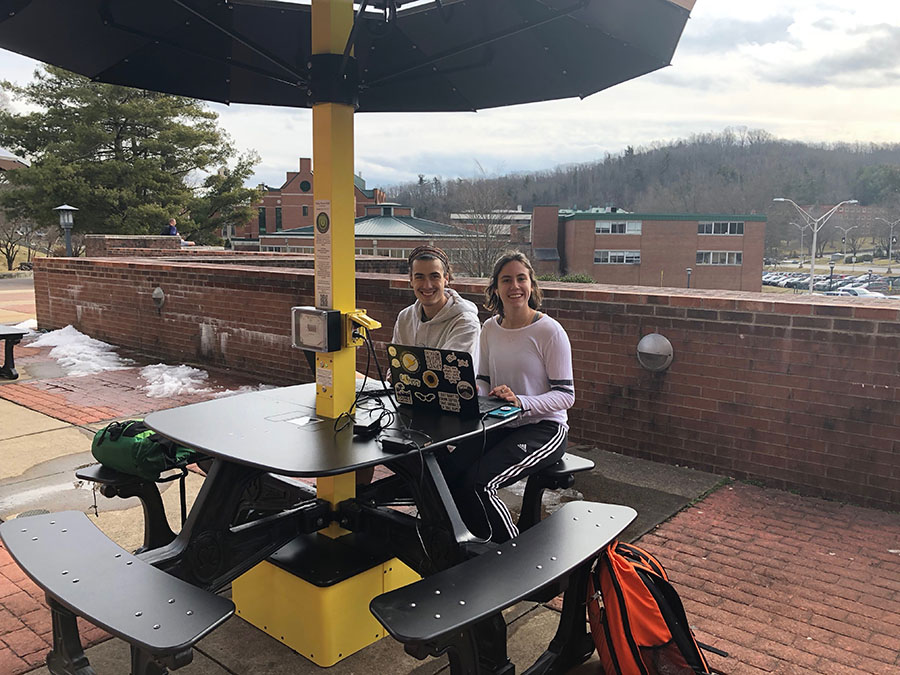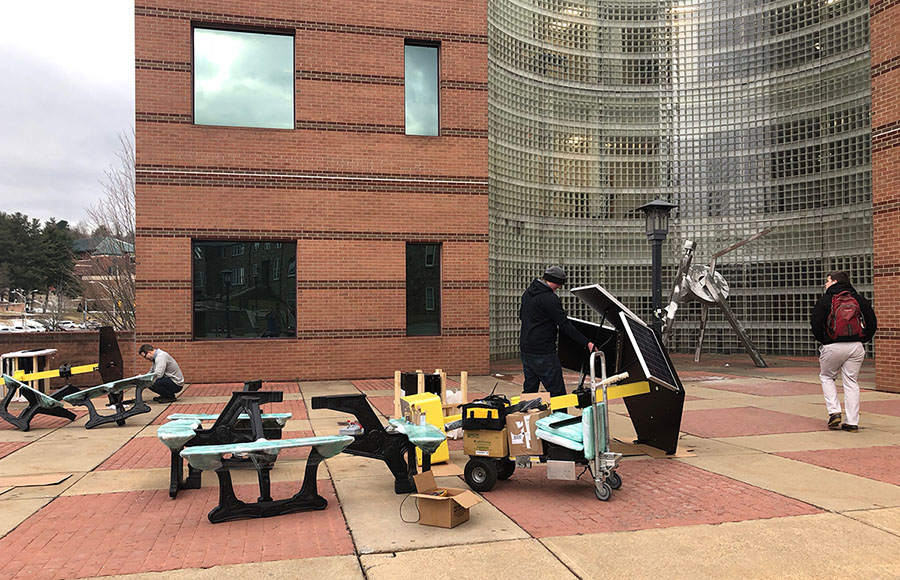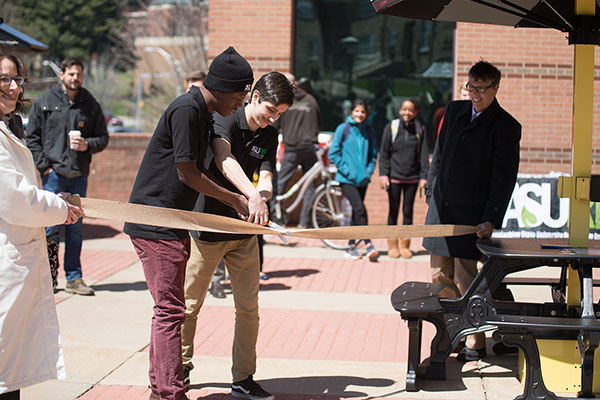BOONE, N.C. — Solar-powered, smart picnic tables were installed on Peacock Hall’s first-floor patio, providing extra form and function for learners on Appalachian State University’s campus.
Two of the tables were purchased by Appalachian’s Office of Sustainability and one was a gift from the Appalachian State Renewable Energy Initiative (REI), a student-led, student-funded organization that installs renewable energy and energy efficiency projects on campus. The tables feature charging stations — including wireless charging, USB ports and regular outlets.
The REI students worked with Appalachian’s Chief Sustainability Officer Dr. Lee Ball, Office of Sustainability Data and Assessment Specialist Jim Dees and the Walker College of Business to create the plan for the tables.
A ribbon-cutting celebration is tentatively set for Monday, April 16, as part of Appalachian’s Earth Month observance.
About the Appalachian State University Renewable Energy Initiative
The Appalachian State University Renewable Energy Initiative (REI) is a student-led, student-funded organization that seeks to install renewable energy and energy efficiency projects on campus. Projects can be proposed by any member of App State and are carried out by the REI committee with the help of faculty and staff advisors. Since its inception in 2004, the REI has funded over 40 renewable energy and energy efficiency projects, including the Broyhill Wind Turbine, which was the largest wind turbine in North Carolina at the time it was built. REI works closely with App State’s Research Institute for Environment, Energy and Economics and Office of Sustainability and Energy Management. Learn more at https://rei.appstate.edu.
About Sustainability and Energy Management at App State
Appalachian State University’s leadership in sustainability is known nationally. The university’s holistic, three-branched approach considers sustainability economically, environmentally and equitably in relationship to the planet’s co-inhabitants. The university is an active steward of the state’s interconnected financial, cultural and natural resources and challenges students and others think critically and creatively about sustainability and what it means from the smallest individual action to the most broad-based applications. The university offers both undergraduate and graduate academic degree programs that focus on sustainability. In addition, 100 percent of Appalachian’s academic departments offer at least one sustainability course or course that includes sustainability, and all students graduate from programs that have adopted at least one sustainability learning outcome. Learn more at https://appstate.edu/sustainability.
About Appalachian State University
As a premier public institution, Appalachian State University prepares students to lead purposeful lives. App State is one of 17 campuses in the University of North Carolina System, with a national reputation for innovative teaching and opening access to a high-quality, cost-effective education. The university enrolls more than 21,000 students, has a low student-to-faculty ratio and offers more than 150 undergraduate and 80 graduate majors at its Boone and Hickory campuses and through App State Online. Learn more at https://www.appstate.edu.
What do you think?
Share your feedback on this story.








![How NCInnovation Is Rethinking Economic Development in North Carolina [faculty featured]](/_images/_posts/2026/02/rethinking-economic-development-600x400.jpg)






